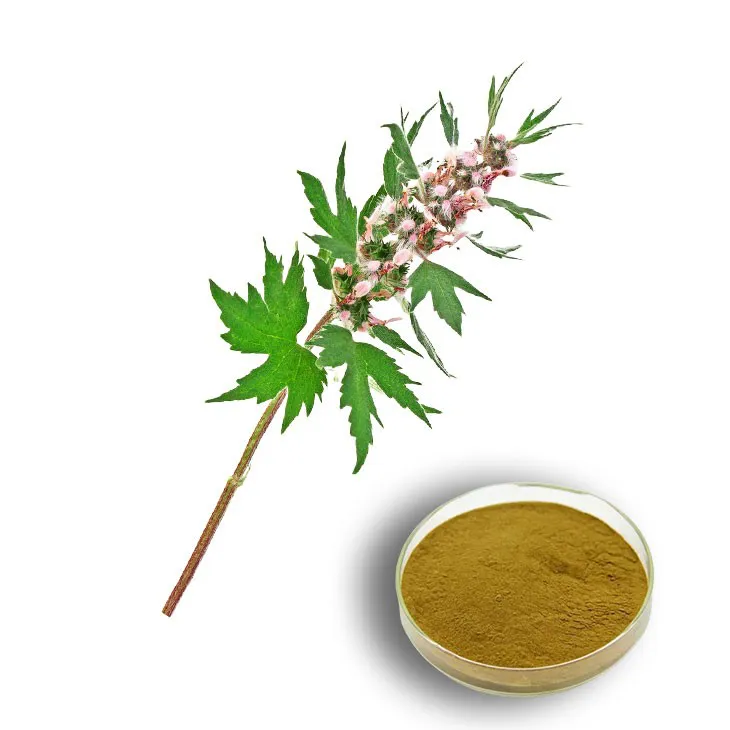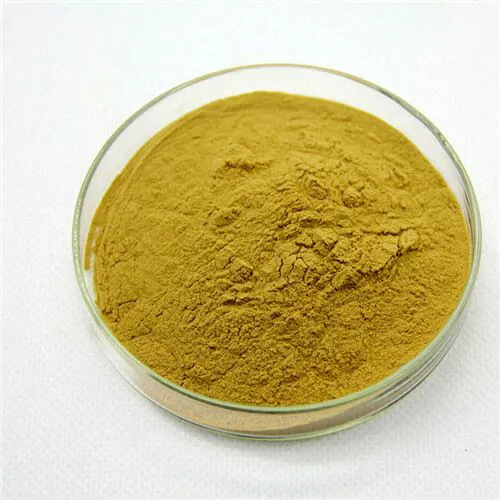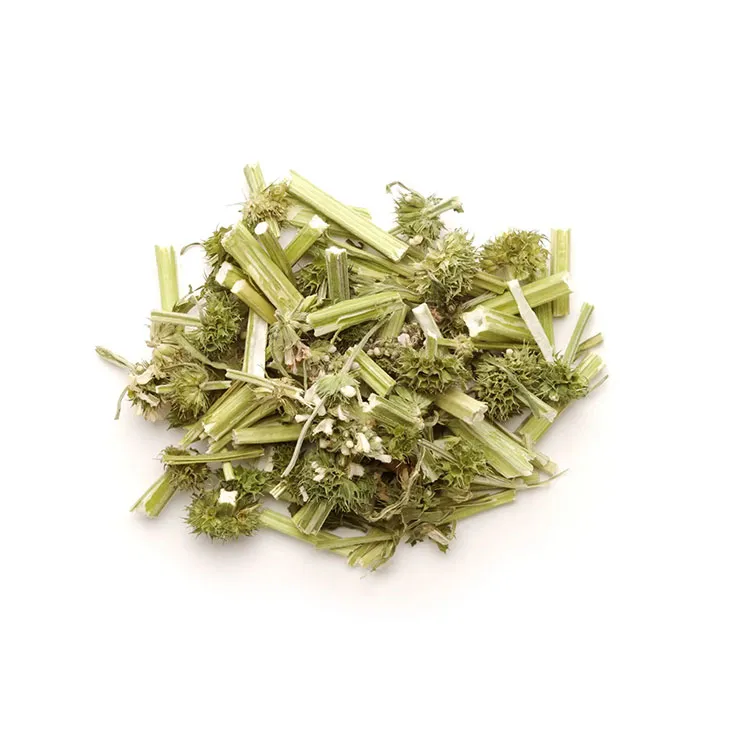- 0086-571-85302990
- sales@greenskybio.com
Five Reasons for Using Motherwort Extract in the Food Industry.
2024-12-10

1. Rich Nutritional Value
Motherwort is a plant that is rich in various nutrients, and its extract can be a valuable addition to the food industry. Vitamins play a crucial role in maintaining human health. Motherwort Extract contains vitamins such as vitamin A, which is important for vision, and vitamin C, which is a powerful antioxidant that helps boost the immune system. These vitamins are essential for the normal functioning of the body, and their presence in food products can enhance the nutritional profile of the items.
In addition to vitamins, Motherwort Extract also contains minerals. Minerals like potassium, calcium, and magnesium are present in motherwort. Potassium is necessary for proper heart function and fluid balance in the body. Calcium is well - known for its role in building strong bones and teeth, while magnesium is involved in numerous enzymatic reactions in the body. Incorporating Motherwort Extract into food can be a way to supplement these minerals, especially for those who may have dietary deficiencies.

2. Health - Promoting Functions
Motherwort extract has several health - promoting functions, especially when it comes to women's health. For example, it has been traditionally used to help with menstrual irregularities. It may help regulate the menstrual cycle, reducing symptoms such as cramps and excessive bleeding. This can be of great benefit to women who experience hormonal imbalances or irregular menstrual patterns.
Moreover, motherwort extract is believed to have a positive impact on the overall endocrine system. The endocrine system is responsible for producing hormones that regulate various body functions. By promoting the proper functioning of the endocrine system, motherwort extract can contribute to better hormonal balance, which in turn can affect mood, energy levels, and general well - being.

3. Unique Flavor Contribution
One of the interesting aspects of using motherwort extract in the food industry is its contribution to flavor. Motherwort has a distinct herbal flavor that can add a new dimension to food products. It has a slightly bitter and earthy taste, which can be used to create complex and interesting flavor profiles in various dishes.
In the world of beverages, for instance, motherwort extract can be added to herbal teas or natural fruit juices. In herbal teas, it can blend well with other herbs like chamomile or peppermint, creating a unique and soothing drink. In fruit juices, it can add an unexpected herbal note that can appeal to consumers looking for something different.
In culinary applications, motherwort extract can be used in cooking savory dishes. It can be added to soups, stews, or sauces. For example, in a vegetable soup, a small amount of motherwort extract can add depth and a unique flavor that sets the dish apart from ordinary soups.

4. Antioxidant Properties
Motherwort extract possesses antioxidant properties, which are highly valuable in the food industry. Antioxidants are substances that can prevent or slow down the oxidation of other molecules in the body. In the context of food, this means that motherwort extract can help prevent food from spoiling.
Oxidation is a process that can lead to the degradation of food quality. It can cause fats to become rancid, fruits and vegetables to turn brown, and proteins to lose their functionality. By adding motherwort extract to food products, manufacturers can extend the shelf life of their products. This is not only beneficial for reducing food waste but also for maintaining the freshness and quality of the food for consumers.
For example, in the case of baked goods, motherwort extract can be added to the dough or batter. It can prevent the fats in the ingredients from oxidizing too quickly, keeping the baked goods fresh for a longer period. In processed meats, it can also play a role in preventing spoilage and maintaining the color and texture of the meat.

5. Meeting the Trend for Natural Ingredients
In today's market, there is a growing demand for natural ingredients in food products. Consumers are becoming more conscious about what they eat and are increasingly seeking out foods that are made with natural and minimally processed ingredients. Motherwort extract, as a natural plant extract, fits well into this trend.
Using motherwort extract in food products can be a way for food manufacturers to appeal to health - conscious consumers. It can be labeled as a natural ingredient, which can give the product a competitive edge in the market. Moreover, natural ingredients are often associated with a more "wholesome" and "pure" image, which can enhance the brand image of food products.
Additionally, as the trend towards natural ingredients continues to grow, research on the potential uses and benefits of motherwort extract in the food industry is likely to increase. This could lead to further innovation and the development of new food products that incorporate motherwort extract in novel ways.
FAQ:
Question 1: What are the main vitamins and minerals in motherwort extract?
While motherwort contains vitamins such as vitamin A, vitamin C, and some B - vitamins, it also has minerals like potassium, calcium, and magnesium. However, the exact content may vary depending on factors like the extraction method and the source of the motherwort.
Question 2: How does motherwort extract specifically promote women's health?
Motherwort has been traditionally associated with women's health. It may help regulate menstrual cycles, relieve menstrual cramps, and may also have a positive impact on hormonal balance in women. However, more research is still needed to fully understand all of its mechanisms in promoting women's health.
Question 3: Can motherwort extract be used in all types of food?
No. While it can add a unique flavor and has certain beneficial properties, not all food types are suitable for the addition of motherwort extract. For example, in some highly acidic or alkaline foods, it may interact differently and affect the overall quality or stability of the food. Also, in baby food, its use needs to be carefully considered due to potential effects on the delicate digestive systems of infants.
Question 4: How effective is the antioxidant property of motherwort extract in extending food shelf life?
The antioxidant property of motherwort extract can help prevent the oxidation of fats and other components in food. This slows down the spoilage process. However, the effectiveness can vary depending on the concentration of the extract used, the type of food, and storage conditions. In some cases, it can significantly extend the shelf life, but in others, its impact may be more limited.
Question 5: Are there any potential side effects of using motherwort extract in the food industry?
Although motherwort is a natural plant extract, some people may be allergic to it. Also, if consumed in excessive amounts, it may cause some gastrointestinal discomfort. Therefore, strict quality control and proper dosage determination are necessary when using it in the food industry.
Question 6: How is motherwort extract obtained for use in the food industry?
Motherwort extract is typically obtained through processes such as solvent extraction. The plant material is first dried and then treated with an appropriate solvent (such as ethanol or water) to extract the active components. After extraction, the solvent is removed through evaporation or other methods to obtain a concentrated extract that can be used in the food industry.
Related literature
- The Nutritional and Functional Properties of Motherwort Extract in Food"
- "Motherwort Extract: A Promising Natural Ingredient in the Food Industry"
- "Beneficial Effects of Motherwort on Food Quality and Health"
- ▶ Hesperidin
- ▶ Citrus Bioflavonoids
- ▶ Plant Extract
- ▶ lycopene
- ▶ Diosmin
- ▶ Grape seed extract
- ▶ Sea buckthorn Juice Powder
- ▶ Fruit Juice Powder
- ▶ Hops Extract
- ▶ Artichoke Extract
- ▶ Mushroom extract
- ▶ Astaxanthin
- ▶ Green Tea Extract
- ▶ Curcumin
- ▶ Horse Chestnut Extract
- ▶ Other Product
- ▶ Boswellia Serrata Extract
- ▶ Resveratrol
- ▶ Marigold Extract
- ▶ Grape Leaf Extract
- ▶ New Product
- ▶ Aminolevulinic acid
- ▶ Cranberry Extract
- ▶ Red Yeast Rice
- ▶ Red Wine Extract
-
Chasteberry Extract
2024-12-10
-
Oyster Mushroom Extract Powder
2024-12-10
-
Maitake Mushroom Extract
2024-12-10
-
Jujube Extract
2024-12-10
-
Cocoa Extract
2024-12-10
-
Reishi mushroom extract
2024-12-10
-
Andrographis Paniculata Extract Powder
2024-12-10
-
Stevia Extract
2024-12-10
-
Astaxanthin
2024-12-10
-
Artichoke Extract
2024-12-10





















